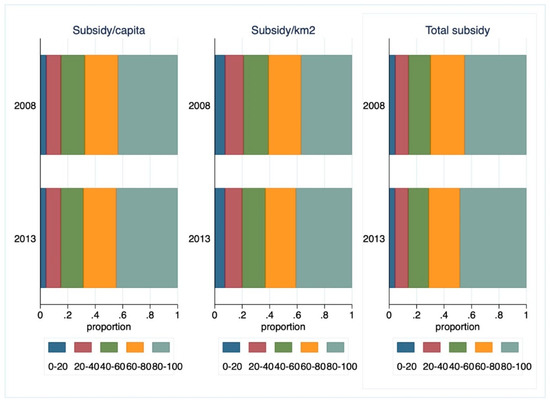 www.mdpi.com
www.mdpi.com
Bakucs Zoltán, Fertő Imre és Benedek Zsófia közös cikke a Sustainability folyóiratban Success or Waste of Taxpayer Money? Impact Assessment of Rural Development Programs in Hungary címmel megjelent.
The effectiveness of support directed to less developed regions is a timely question more than halfway through the 2014–2020 programming period. We present an analysis of the impact of rural development support on the well-being of Hungarian LAU1 regions between 2008 and 2013. The aim was to measure the overall impact of all of the Rural Development Funds, covering all measures within the program. Two indices of local well-being were used: the multi-dimensional, local-variables-based Regional Development Index that measures the overall level of regional development and a simple, migration-based index as a proxy for perceived quality of life. Generalized propensity score matching, and difference-in-differences estimation techniques were employed to evaluate the impact of subsidies. Irrespective of how the amount of support was calculated, the measure of local well-being, or the methodology employed, the impact was not significant, and was sometimes even negative. This casts doubt on the effectiveness of Rural Development Policy in Hungary
Nem található esemény a közeljövőben.
A KRTK Közgazdaság-tudományi Intézet teljesítményéről A KRTK KTI a RePEc/IDEAS rangsorában, amely a világ közgazdaság-tudományi tanszékeit és intézeteit rangsorolja publikációs teljesítményük alapján, a legjobb ... Read More »

Tisztelt Kollégák! Tudományos kutatóként, intézeti vezetőként egész életünkben a kutatói szabadság és felelősség elve vezetett bennünket. Meggyőződésünk, hogy a tudomány csak akkor érhet el ... Read More »

Srí Lanka: a 2022-es gazdasági válság leckéje – A. Krueger Lessons from Sri Lanka Anne O. Krueger Jul 25, 2022 – Project Syndicate ... Read More »

A permanens válság korában élünk – J. Meadway We’re living in an age of permanent crisis – let’s stop planning for a ‘return ... Read More »

A 2021 végén, illetve 2022 elején tapaszalt 6, illetve 7%-os cserearányromlás brutális reáljövedelem-kivonást jelentett a magyar gazdaságból. A külső egyensúly alakulásával foglalkozó elemzések többnyire ... Read More »
